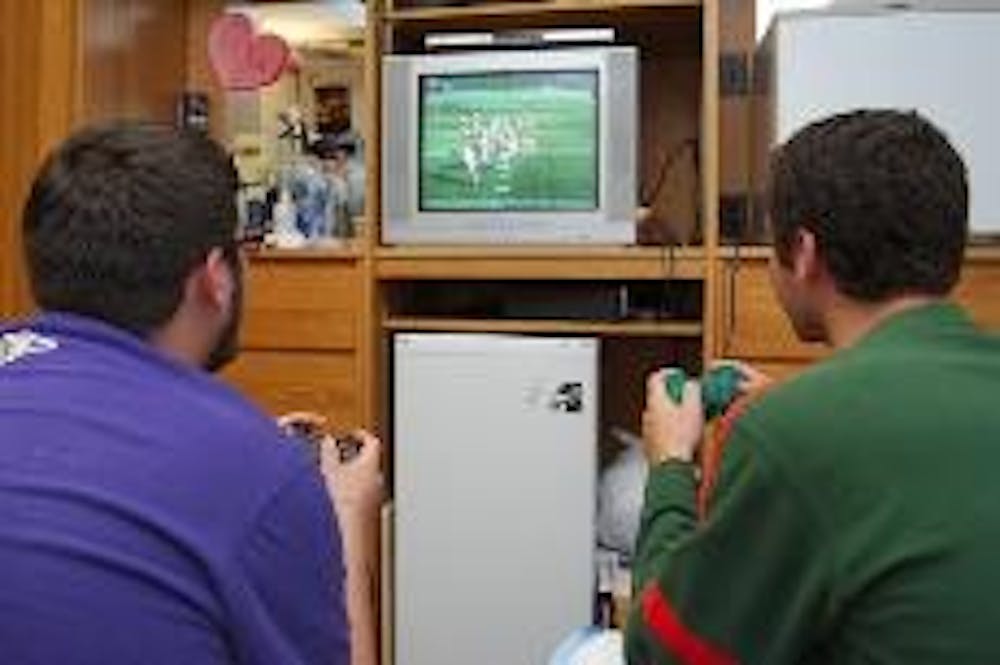AU students struggling to keep up their grades this year should consider stowing away their Xboxes or other gaming devices.
First-year students who had video game systems in their dorm rooms were found to study an average of 40 minutes less per day than students without video game systems, a recent study found.
The study, which was conducted by the National Bureau of Economic Research, found that students with video game systems had grade-point averages 0.241 points lower on a four-point scale than students who did not.
Many AU students said they were not surprised by how video games affect studying.
"It surprises me it's only 40 minutes and not five hours," said Alex Temple, a junior in the College of Arts and Sciences.
But Alex's joke was not too far from reality.
One student said she knew someone whose academics had suffered because of video games.
"I had a friend who had to transfer because he played 'World of Warcraft' all the time," said Lauren Sublett, a sophomore in the School of Public Affairs.
Another student knew of a personal relationship impacted by video games.
"[My cousin] broke up with his fianc?e because he couldn't stop playing 'Everquest,'" said Rafik Salama, a freshman in CAS.
"World of Warcraft" and "Everquest" are multiplayer, Internet-based video games that have been released in several versions and have sold millions of copies worldwide.
Yury Vasilchenko, a junior in the Kogod School of Business, admitted to having gone through a time when he played online games, like "World of Warcraft," an average of eight hours a day. No longer addicted to video games, he currently had nothing but bitterness toward them.
"Video games are hedonistic things that are a waste of time," Vasilchenko said.
The National Bureau of Economic Research study, released in August, refutes a 1985 study that found little correlation between time spent studying and grades, according to the Chronicle of Higher Education.
"Students who bring video games to school might have other habits that influence their roommates' study habits," Howard Schuman, lead author of the 1985 study, told the Chronicle in an e-mail.
The authors of the August study acknowledged that possibility.
"While it is tempting 'a priori' to view students who bring video games as types who will tend to encourage a variety of harmful behaviors in their peers, this does not seem to be the case," wrote Todd R. Stinebrickner and his father Ralph Stinebrickner, the authors of the August study.
"We find no evidence that students at Berea [Berea College in Kentucky, the site of the study] who bring video games are of lower observed ability, are less likely to attend class, are more likely to drink alcohol or have harmful sleep habits," the authors wrote.
Mike Kimmel, president of the AU Gamers club and a junior in the School of International Service, defended video games.
"I think it depends a lot on the individual," he said. "People who get addicted to video games, well, they're likely to get addicted to other things, even if it's not just video games."
C.J. Schmied, a sophomore in the School of Communication, shared Kimmel's position on the study.
"There are some people offsetting that data [of the study] by playing 'World of Warcraft' for, like, 20 waking hours of the day," he said. "You have to take into account those mental addictions. There are people who are literally addicted to video games"





